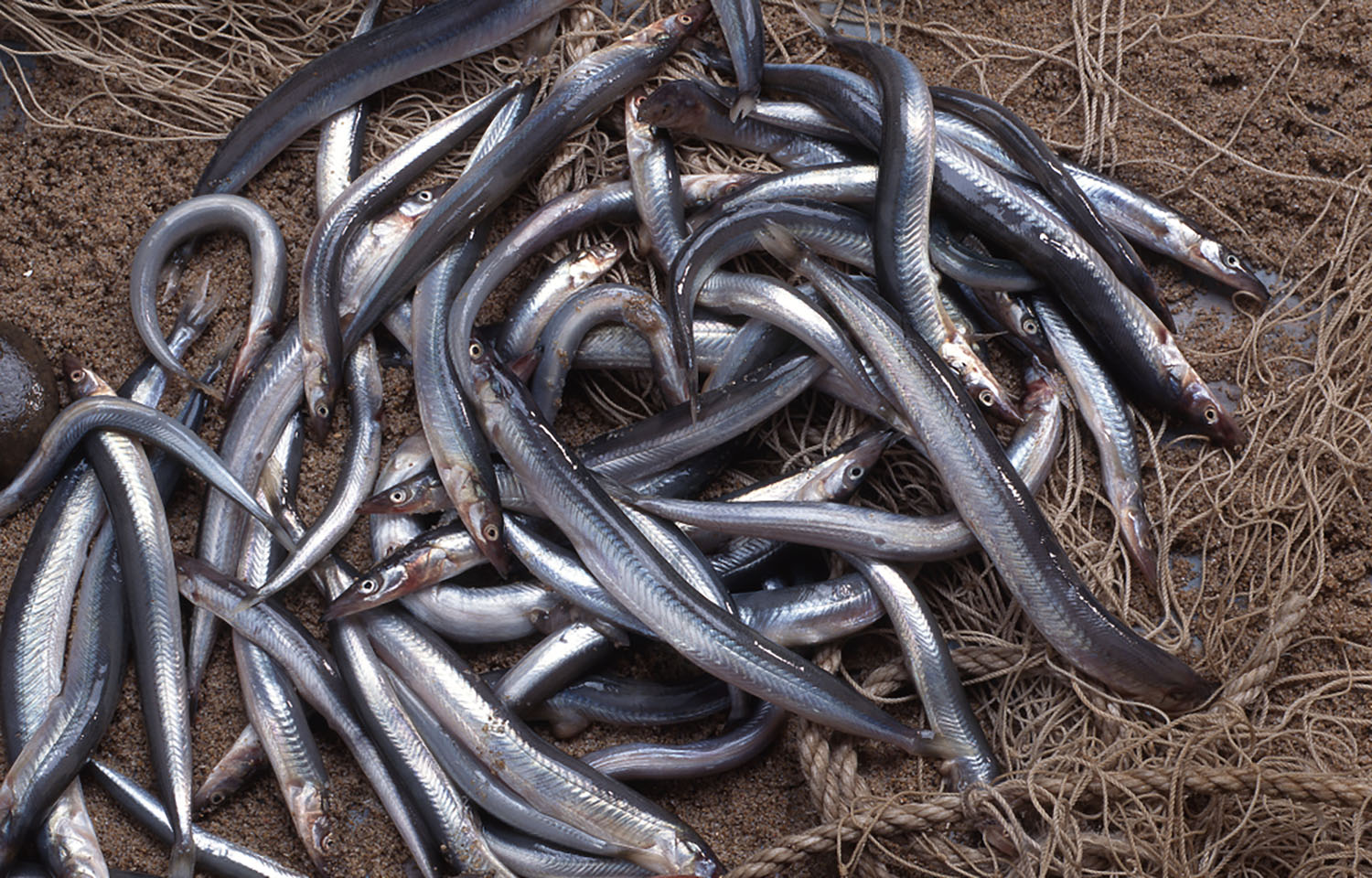U.K. policymakers and conservation groups have largely hailed a decision taken by the U.K. government to stop sandeel fishing in English North Sea waters, which will go into force from 1 April onward, as a much-needed boost for marine life.
Alongside the closure of sandeel fisheries, the government’s new plans – delivered around one year on from the launch of the U.K. Environmental Improvement Plan – will include further restrictions on bottom trawling and an enhanced framework regarding the nation’s national parks and protected areas.
Announcing the measures on 31 January 2024, the U.K. Department for Environment, Food, and Rural Affairs (Defra) said sandeels are a vital food source for some of the country’s most vulnerable seabirds and marine mammals, including puffins and harbor porpoises, as well as commercially important fish species such as haddock and whiting. Defra said the closure will bolster the resilience of these species and ensure biodiversity can recover across marine habitats.
In addition, the department said its proposed targeted ban on bottom trawling in an additional 13 marine protected areas (MPAs) will improve the health of pink sea fans, fragile sponges, and anemones, among other benefits.
U.K. Environment Secretary Steve Barclay said the measures are the result of the launch of the Environmental Improvement Plan in early 2023.
“We are building on this progress with a new package to safeguard our marine ecosystems and bring us one step closer to achieving our 30-by-30 target – both on land and sea,” he said.
The U.K. government has pledged to protect 30 percent of all land and sea by 2030 as part of the Kunming-Montreal Global Biodiversity Framework (GBF), adopted by the United Nations in December 2022.
Chair of Defra-sponsored public body Natural England Chair Tony Juniper said restoring thriving ecosystems is a “vital process” for meeting national nature recovery goals, as well as for food and water security, human well-being, and national economic prosperity. Royal Society for the Protection of Birds (RSPB) Chief Executive Beccy Speight said the end to industrial sandeel fishing has lended “a vital lifeline” for U.K. seabirds when they need it most.
“The U.K. is home to globally important seabird colonies, but these populations are at the forefront of the nature and climate emergency and are in significant decline, with their resilience being pushed to the limit,” Speight said.
Nonprofit ocean conservation organization Oceana UK Executive Director Hugo Tagholm called the ban “unequivocally the right decision.”
“Sandeels are tiny fish, but their impact is vast. As the mainstay of many marine food webs, protecting these fish helps protect our awe-inspiring ocean wildlife. Up to half the diet of whales, such as humpback and minke, is made up of sandeels, for instance,” he said.
However, Tagholm said the government's measures do not go far enough, especially in regard to the new ban on bottom trawling, which the organization laments is only partial, covering just reef and rock habitats in 13 MPAs.
Tagholm called the partial closure “a welcome step forward in the race to properly protect 30 percent of our seas by 2030” but highlighted that “vast swathes” of so-called “protected” areas remain open to the extremely harmful practice.
“Targeting [MPA] habitats alone doesn’t account for the wildlife beyond those boundaries and does not support the full recovery of marine ecosystems. Allowing destructive bottom trawling to continue anywhere in any MPA is completely incompatible with allowing ocean life to recover and flourish,” he said. “Our marine wildlife is in urgent need of safe havens that are not at risk from wholesale destruction.”
Greenpeace UK Oceans Campaigner Fiona Nicholls said the ban on sandeel fishing in the North Sea was “crucial” to support the survival of iconic species like puffins and the many other seabirds that depend on them but that the move to expand the area covered by bottom-trawl bans “exposes the difference” between the many U.K. marine areas still open to threats.
“Real ocean protection is urgently needed – both globally and in U.K. waters. Last year, the government supported a moratorium on deepsea mining, [marking] a change in their position which, along with protecting species like sandeels in the North Sea, must be partnered with ambitious international oceans leadership,” Nicholls said. “This year, that means ratifying the Global Ocean Treaty and bringing proper protection to the U.K.'s domestic MPAs. After all, the government has committed to protect 30 percent of both global and domestic waters by 2030; now, they need to get it done."
Separately, the Scottish government has said it will also ...
Photo courtesy of COULANGES/Shutterstock








